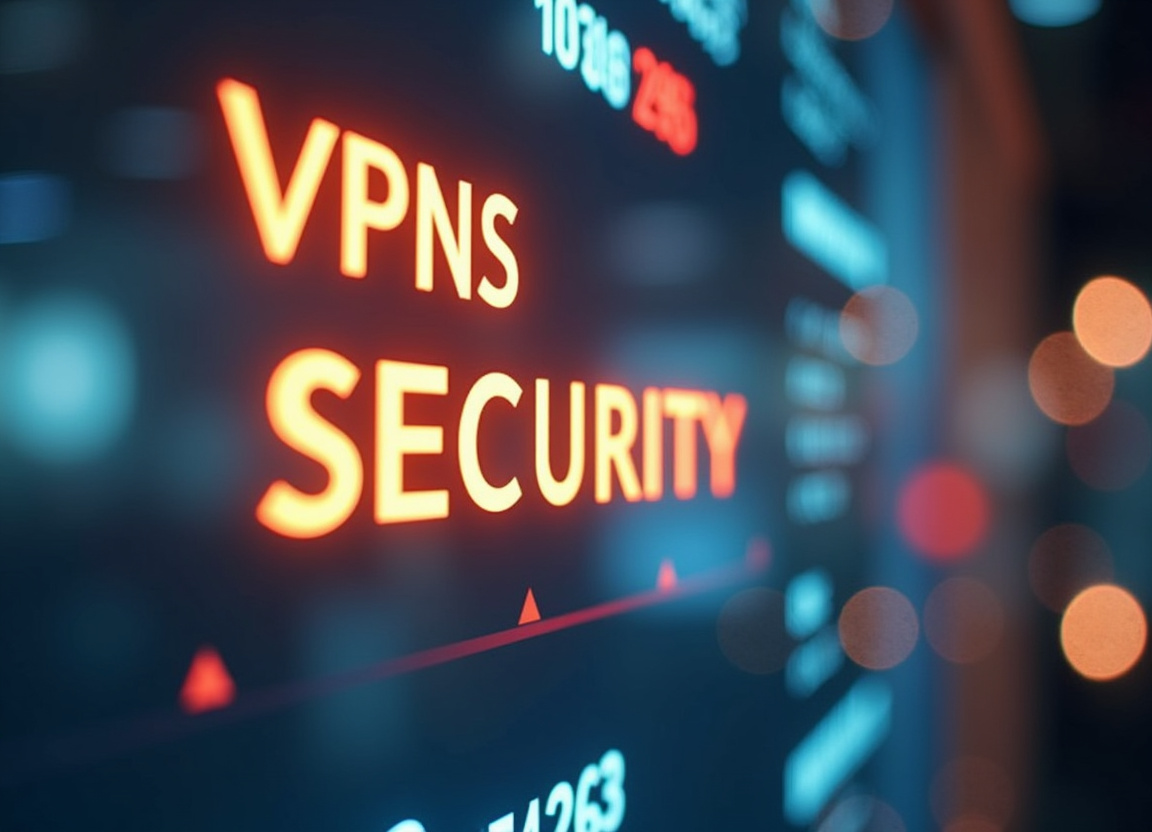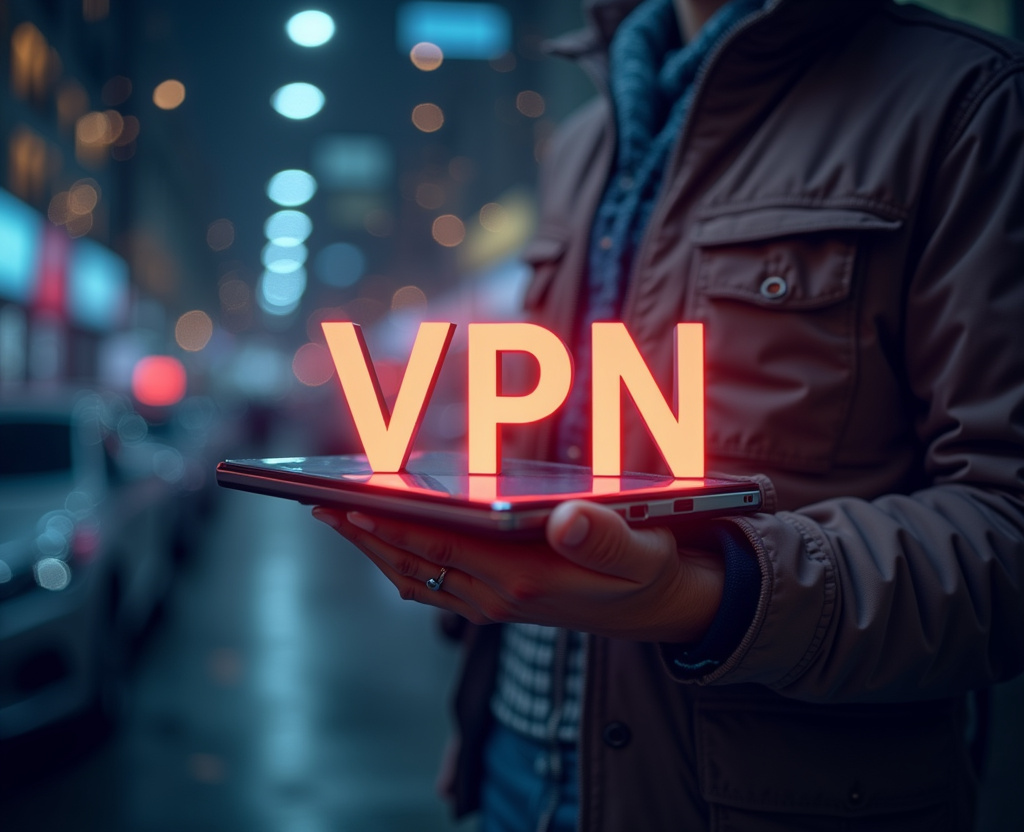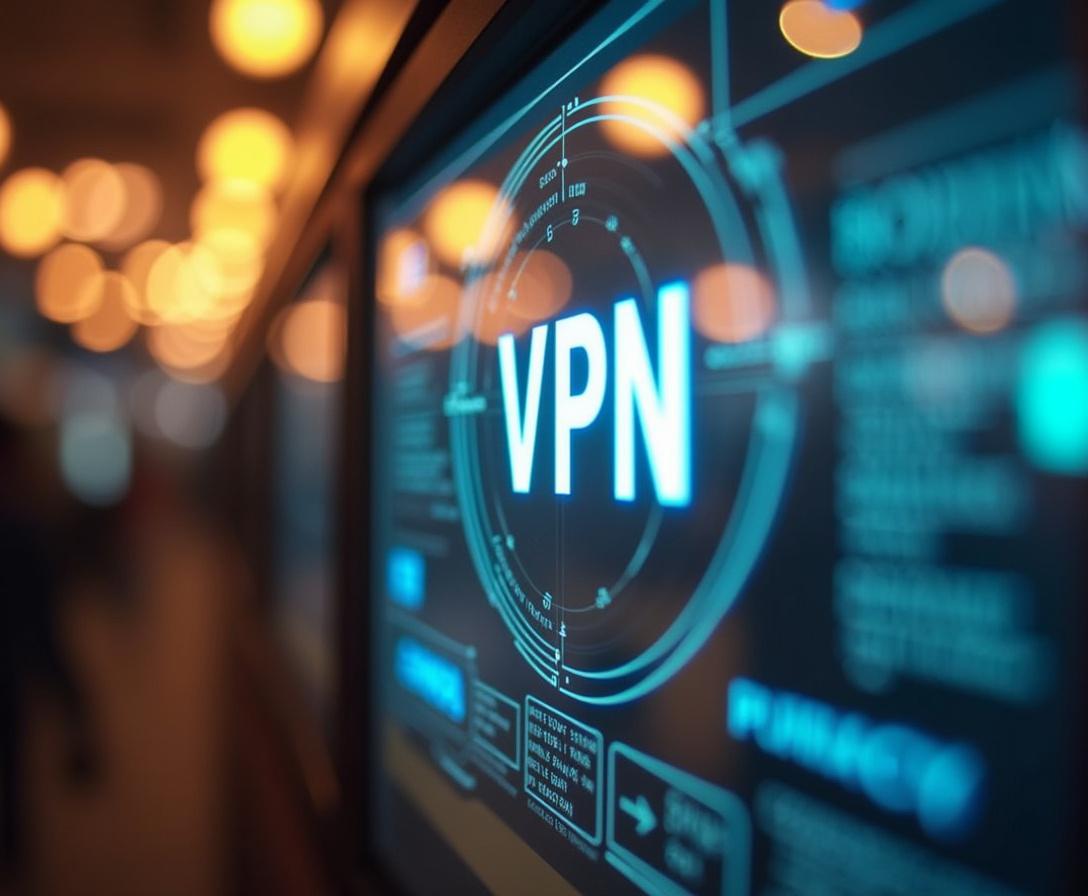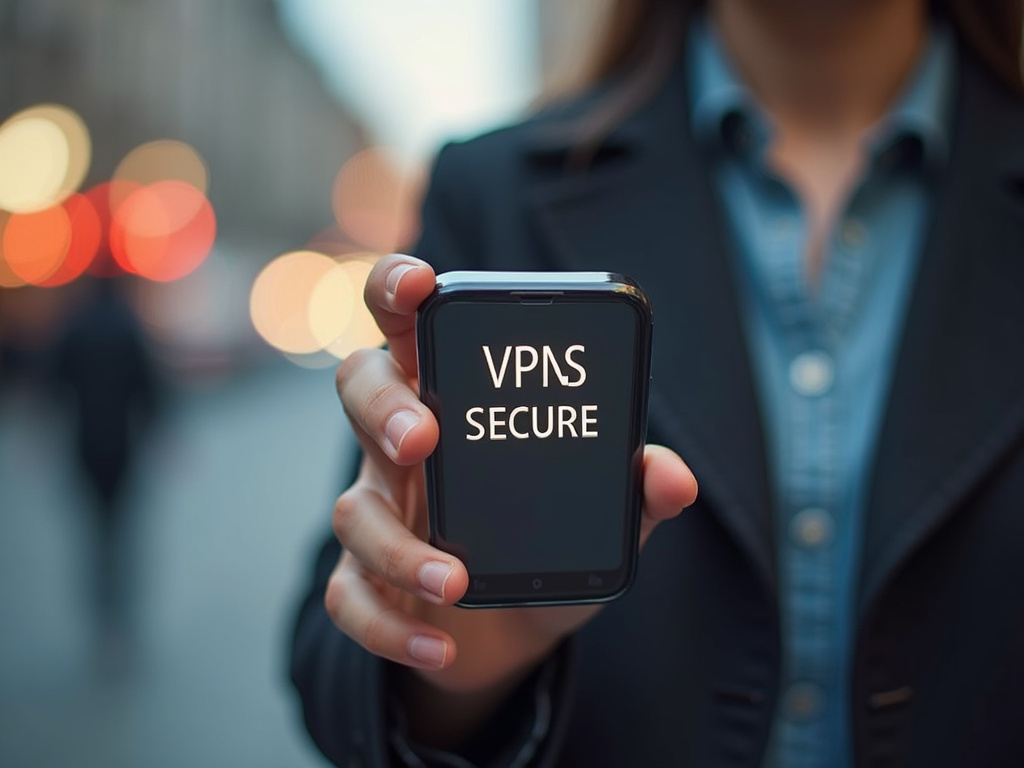VPNs for Retail: Securing Transactions and Customer Data
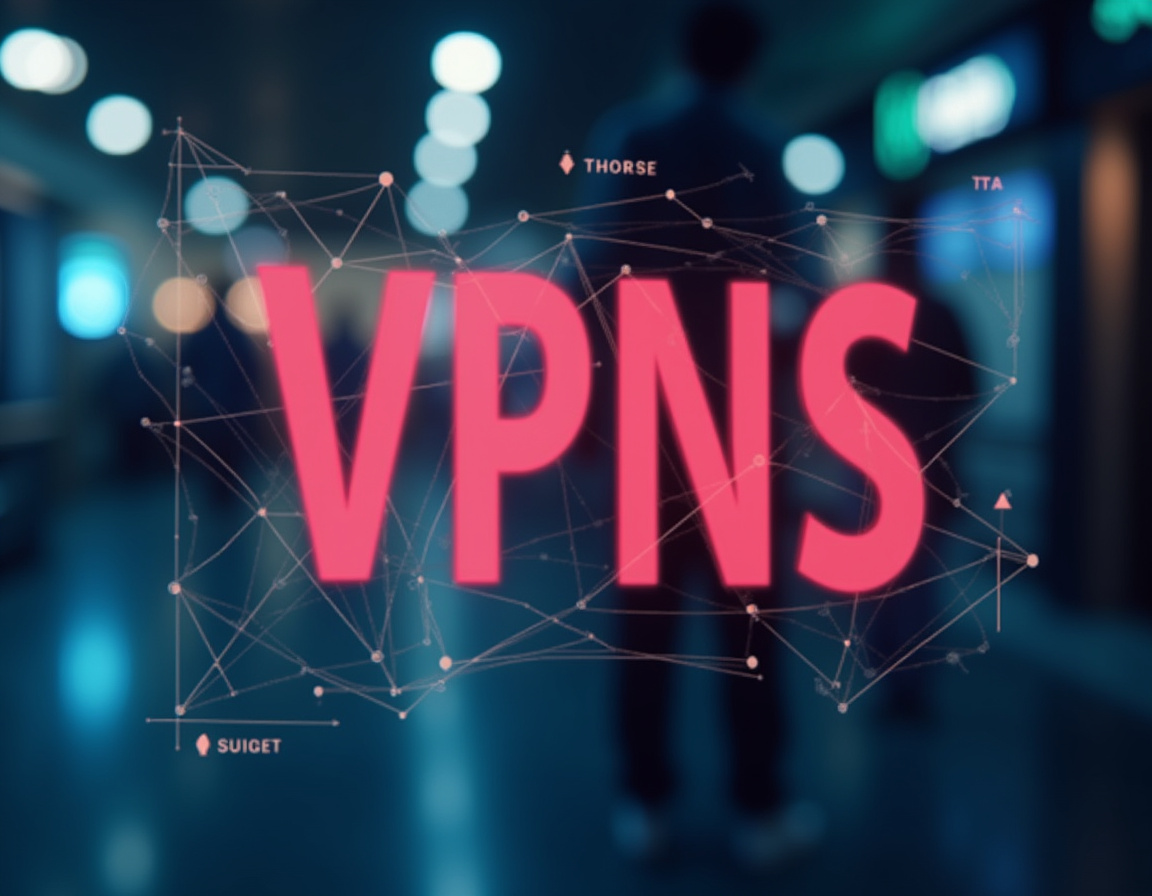
Table of Contents
VPNs for Retail: Securing Transactions and Customer Data
In today's digitally interwoven retail arena, where the seamless exchange of online transactions and the meticulous management of customer data are indispensable for sustained triumph, the implementation of stalwart security protocols stands as an absolute necessity. A Virtual Private Network (VPN) specifically tailored for the retail sector has emerged as a mission-critical instrument for businesses striving to fortify their financial transactions, defend sensitive customer information against breaches, and cultivate a competitive advantage in an increasingly challenging marketplace. This comprehensive guide undertakes a deep exploration of the multifaceted benefits inherent in retail VPNs, with a primary focus on their efficacy in amplifying transaction security measures, reinforcing the protection of confidential customer data, instituting robust sales defense mechanisms, and ultimately contributing to the establishment of a significantly more secure and resilient retail operational framework.
As retail enterprises progressively broaden their digital footprint and wholeheartedly embrace omnichannel strategies to cater to evolving consumer behaviors, the imperative for a secure and unwaveringly reliable network infrastructure achieves paramount importance. In this context, a VPN for retail transcends the status of a mere technological adjunct, assuming the role of an indispensable cornerstone in the proactive defense against an ever-escalating barrage of cyber threats, crippling data breaches, and a wide spectrum of security vulnerabilities that threaten to undermine the integrity of retail operations. Functioning as a digital fortress, a VPN for retail meticulously encrypts all data traffic traversing the network, rendering it unintelligible to unauthorized observers.
Simultaneously, it adeptly masks IP addresses, effectively cloaking the true location of the retailer's network and its constituent devices. This dual-layered approach culminates in the creation of a secure and impenetrable tunnel through which sensitive information can flow unimpeded between the retailer's internal network and the external digital landscape. The assurance that sensitive data, encompassing customer credit card information, personally identifiable details, and intricate transaction records, remains shielded from unauthorized access, manipulation, or theft is of utmost criticality for maintaining customer confidence and complying with stringent regulatory mandates.
Beyond the realm of fundamental security enhancements, the strategic deployment of a VPN for retail can yield significant dividends in terms of operational efficiency and overall network performance. Through the intelligent routing of data traffic via strategically optimized servers strategically positioned across the globe, a VPN can demonstrably improve network speed and substantially reduce latency, culminating in accelerated transaction processing times and a measurably more seamless and gratifying customer experience. The ability to swiftly and efficiently process transactions, particularly during peak sales periods or promotional events, can directly translate into increased revenue generation and enhanced customer satisfaction levels.
Moreover, a VPN empowers retailers to circumvent geographically imposed restrictions and gain unrestricted access to content or resources that might otherwise be unavailable within their specific geographic region. This capability proves particularly invaluable for businesses engaged in multinational operations or those actively pursuing strategies for market expansion into new territories. The ability to access location-specific pricing data, analyze competitor strategies in different regions, and tailor marketing campaigns to suit diverse cultural contexts can provide a significant competitive edge in an increasingly globalized marketplace.
In the contemporary retail landscape, characterized by unrelenting competition and rapidly evolving technological advancements, the unwavering prioritization of robust security protocols is no longer a matter of choice but rather an existential imperative. Maintaining customer trust, safeguarding brand reputation, and protecting the financial bottom line are inextricably linked to the implementation of comprehensive security safeguards. A retail VPN, in this context, emerges as a holistic security solution, meticulously engineered to safeguard financial transactions, protect sensitive customer data, and fortify sales channels against a myriad of threats.
This empowers retailers to dedicate their undivided attention to the core mission of growing their business, fostering enduring customer relationships, and consistently delivering exceptional customer service experiences. By allocating resources strategically to the implementation and careful management of a reliable VPN infrastructure, businesses can lay a solid foundation for sustained success in the rapidly transforming retail ecosystem.
Transaction security is of utmost importance in the retail industry, where countless financial transactions occur daily through various channels, including online stores, point-of-sale systems, and mobile payment platforms. A VPN for retail plays a vital role in ensuring the confidentiality and integrity of these transactions, protecting businesses and customers from fraud and data breaches. By establishing an encrypted connection between the retailer's network and the payment gateway, a retail VPN shields sensitive financial data, such as credit card numbers, bank account details, and transaction amounts, from interception or tampering.
This is particularly crucial for online transactions, where data travels across public networks that are susceptible to eavesdropping. Unsecured Wi-Fi networks, commonly found in coffee shops, airports, and other public places, pose a significant risk to transaction security, as hackers can easily intercept data transmitted over these networks. A VPN provides a secure tunnel, even when using public Wi-Fi, ensuring that financial data remains protected.
Moreover, a VPN for retail can help prevent man-in-the-middle attacks, where hackers intercept communication between the retailer and the customer to steal financial information. In these insidious attacks, the hacker positions themselves between the customer and the retailer's server, intercepting and potentially modifying data transmitted between the two parties. By creating a secure tunnel, a VPN ensures that all data transmitted between the two parties is encrypted and authenticated, making it virtually impossible for attackers to compromise the transaction.
The cryptographic protocols used by VPNs, such as AES (Advanced Encryption Standard) and OpenVPN, provide robust protection against even the most sophisticated man-in-the-middle attacks. In addition to protecting financial data, a retail VPN can also help ensure the integrity of transaction records. By verifying the authenticity of data and preventing unauthorized modifications, a VPN helps maintain accurate and reliable records of all transactions.
This is essential for financial reporting, auditing, and resolving customer disputes. Inaccurate or incomplete transaction records can lead to significant financial losses, regulatory penalties, and reputational damage. A VPN's ability to ensure data integrity is crucial for maintaining trust and transparency in the retail environment.
Furthermore, a retail VPN can provide an additional layer of security for point-of-sale (POS) systems, which are often vulnerable to malware attacks and data breaches. POS systems, which handle sensitive customer payment information, are attractive targets for cybercriminals. By encrypting data transmitted between the POS terminal and the payment processor, a VPN can protect customer credit card information from being stolen by hackers.
This is particularly important for businesses that handle a large volume of credit card transactions, as a single data breach can result in significant financial losses, reputational damage, and legal liabilities. Regular security audits and penetration testing can further enhance the security of POS systems protected by a VPN. In a retail setting, implementing a VPN can act as a safeguard against fraudulent activities, protecting against not only external cyber threats but also internal risks.
Employee fraud, such as unauthorized refunds, discounts, or gift card activations, can significantly impact a retailer's bottom line. Many VPNs offer auditing and logging capabilities allowing system administrators to monitor network activity and identify suspicious behavior. Real-time monitoring and alerts can enable prompt detection and response to potential fraudulent activities, minimizing financial losses.
By combining VPN technology with robust internal controls and employee training, retailers can create a comprehensive fraud prevention strategy. VPNs can also play an active role in identifying and mitigating potential fraud by masking IP addresses or implementing geo-blocking technology to prevent transactions originating from known fraudulent countries.
Customer data is the bedrock of successful retail operations, providing valuable insights into customer preferences, buying habits, and demographics. This data fuels personalized marketing campaigns, targeted product recommendations, and enhanced customer service initiatives. Protecting this data is not only a legal and ethical imperative but also a crucial factor in maintaining customer trust and loyalty, which ultimately translates into sustained business growth.
A VPN for retail provides robust protection for customer data, safeguarding it from unauthorized access, theft, or misuse, regardless of where the data is stored or processed. By encrypting all data transmitted across the network, a retail VPN prevents hackers from intercepting and stealing sensitive customer information, such as names, addresses, email addresses, phone numbers, purchase histories, and even browsing behavior. This encryption extends to data transmitted between the customer's device, the retailer's website or mobile app, and the retailer's internal servers.
This end-to-end encryption ensures that even if an attacker manages to intercept data in transit, they will be unable to decipher it without the correct decryption key. This is particularly important for online retailers, who collect vast amounts of customer data through their websites and mobile apps. Online retailers often rely on cookies, tracking pixels, and other technologies to collect data about customer behavior, which can be highly valuable for marketing purposes but also poses a significant privacy risk if not properly secured.
A VPN helps to mitigate this risk by encrypting the data transmitted between the customer's device and the retailer's servers, preventing eavesdropping and data theft. Furthermore, a retail VPN can help comply with data privacy regulations, such as the General Data Protection Regulation (GDPR) and the California Consumer Privacy Act (CCPA), which require businesses to implement appropriate security measures to protect customer data. Failure to comply with these regulations can result in hefty fines, legal action, and significant reputational damage.
A VPN provides a crucial layer of security that helps retailers meet their data privacy obligations and avoid costly penalties. By encrypting data and masking IP addresses, a VPN helps retailers demonstrate compliance with GDPR and CCPA requirements for data security and privacy. Hiding browsing activity is a key factor for data privacy, and can also offer geo-spoofing capabilities, to overcome geological restrictions for both retailers and customers.
In addition to protecting customer data from external threats, a retail VPN can also help prevent internal data breaches. By restricting access to sensitive data and monitoring employee activity, a VPN helps ensure that only authorized personnel can access customer information. Role-based access control, a feature often offered by VPN solutions, allows administrators to define specific access privileges for different employees, limiting their access to only the data they need to perform their job duties.
This is particularly important for businesses with a large workforce, as insider threats can be difficult to detect and prevent. Disgruntled employees, negligent employees, or even employees who are simply unaware of security risks can all potentially compromise customer data. A VPN helps to mitigate these risks by providing a centralized point of control for managing access to sensitive data and monitoring employee activity.
Moreover, a retail VPN can help protect customer data stored in the cloud. Cloud storage has obvious security threats, in transit and at rest. By encrypting data before it is uploaded to the cloud, a VPN ensures that even if the cloud provider is compromised, customer data remains protected.
This is particularly important for businesses that use cloud-based customer relationship management (CRM) or marketing automation systems. By encrypting data in transit and at rest, a VPN provides end-to-end protection for customer data, safeguarding it from both internal and external threats. Implementing a comprehensive data security strategy is essential for maintaining customer trust, protecting brand reputation, and complying with data privacy regulations.
Protecting customer data not only builds trust but also reinforces a brand's credibility. When customers feel secure about sharing their information, they are more likely to engage with a business, make repeat purchases, and recommend the business to others, leading to increased sales and long-term loyalty. In today's competitive retail landscape, building and maintaining customer trust is paramount to success.
A retail VPN is a vital tool for achieving this goal.
Sales protection is a critical aspect of retail security, encompassing measures to prevent theft, fraud, and other criminal activities that can negatively impact a retailer's bottom line. These threats can arise from both external sources, such as cybercriminals and hackers, and internal sources, such as dishonest employees or process vulnerabilities. A VPN for retail plays a significant role in sales protection by mitigating various security risks and safeguarding revenue streams, ensuring business continuity and profitability.
One of the primary ways a VPN protects sales is by preventing fraudulent transactions. By encrypting data and masking IP addresses, a VPN makes it significantly more difficult for fraudsters to intercept and manipulate financial information during online transactions. This is particularly important for e-commerce businesses, which are increasingly targeted by sophisticated fraud schemes.
Fraudsters often use stolen credit card numbers, fake identities, and botnets to carry out fraudulent transactions. A VPN can help detect and prevent these activities by identifying suspicious patterns, such as multiple transactions originating from the same IP address with different credit card numbers or transactions originating from high-risk countries. By implementing geo-blocking features, retailers can restrict transactions from specific geographic locations known for high levels of fraud.
Furthermore, a VPN can help prevent chargeback fraud, where customers make purchases and then falsely claim that they did not authorize the transaction in order to receive a refund. By providing detailed transaction logs and IP address information, a VPN can help retailers dispute chargebacks with credit card companies and recover lost revenue. Strong fraud detection and prevention measures are essential for minimizing chargeback rates and protecting against financial losses.
In addition to preventing fraudulent transactions, a VPN can also help protect against data breaches that can lead to significant financial losses and reputational damage. A data breach can expose sensitive customer information, such as credit card numbers, social security numbers, and addresses, which can be used for identity theft and other fraudulent activities. By encrypting data and implementing strong access controls, a VPN helps prevent data breaches and minimizes the potential impact of a security incident.
A secure network infrastructure is crucial for maintaining customer trust and ensuring that they feel safe when making purchases online. A data breach can erode customer confidence and lead to a significant decline in sales. Investing in a robust security infrastructure, including a retail VPN, is essential for protecting customer data and safeguarding sales.
Moreover, a VPN can help protect against denial-of-service (DoS) and distributed denial-of-service (DDoS) attacks, which can disrupt online sales and cause significant financial losses. These attacks flood a website or online store with malicious traffic, making it unavailable to legitimate customers. A VPN can help mitigate these attacks by distributing traffic across multiple servers and filtering out malicious requests.
By implementing a DDoS mitigation strategy, retailers can ensure that their online stores remain available even during a cyberattack, minimizing downtime and protecting sales. A resilient network infrastructure is essential for maintaining business continuity and ensuring that customers can always access the products and services they need. A VPN can also be instrumental in protecting sales from internal threats.
By monitoring employee activity and restricting access to sensitive data, a VPN can help prevent employee theft, fraud, and other malicious activities. Implementing strong internal controls and employee training is essential for minimizing the risk of internal threats. By combining VPN technology with robust security policies and procedures, retailers can create a comprehensive sales protection strategy that safeguards their revenue streams and ensures long-term profitability.
Investing in a retail VPN is not just an expense; it is an investment in the security, stability, and success of the business. Sales protection with a VPN is not only about preventing immediate losses, but also creating solid grounds for long-term financial growth and customer loyalty. It is a strategic step towards a more secure and resilient business.
In conclusion, the integration of a robust VPN for retail is no longer a luxury but a fundamental necessity for businesses operating in today's dynamic and threat-laden digital landscape. The benefits extend far beyond simple data encryption, encompassing transaction security, customer data protection, and proactive sales protection, which are all vital components of a thriving and sustainable retail operation. Embracing a comprehensive VPN solution translates to fostering customer trust, ensuring regulatory compliance, and ultimately fortifying the bottom line.
The importance of transaction security cannot be overstated. In an era dominated by online and mobile payments, retailers must prioritize the safety and integrity of every financial exchange. A retail VPN acts as a bulwark against fraud, man-in-the-middle attacks, and other cyber threats that can compromise sensitive financial data.
By establishing an encrypted connection between the retailer and the payment gateway, a VPN shields customer credit card information and bank account details from prying eyes, ensuring that transactions are processed securely and efficiently. This not only protects customers from financial losses but also safeguards the retailer's reputation and prevents costly chargebacks. Customer data protection is another critical area where a retail VPN provides significant value.
In today's data-driven economy, customer data is a valuable asset that can be used to personalize marketing campaigns, improve customer service, and drive sales growth. However, this data is also a target for cybercriminals who seek to exploit it for financial gain. A retail VPN helps protect customer data from unauthorized access, theft, or misuse by encrypting all data transmitted across the network.
This ensures that sensitive customer information, such as names, addresses, email addresses, and purchase histories, remains confidential and secure. Moreover, a VPN helps retailers comply with data privacy regulations, such as GDPR and CCPA, which mandate that businesses implement appropriate security measures to protect customer data. Sales protection is a third area where a retail VPN can make a significant contribution.
By preventing fraudulent transactions, mitigating the risk of data breaches, and protecting against denial-of-service attacks, a VPN helps retailers safeguard their revenue streams and ensure business continuity. A VPN can also help protect against internal threats by monitoring employee activity and restricting access to sensitive data. By implementing a comprehensive security strategy that includes a retail VPN, retailers can create a secure and resilient environment that protects their sales and maximizes their profitability.
Beyond these core benefits, a retail VPN can also provide additional advantages, such as improved network performance, enhanced employee productivity, and greater flexibility in accessing geographically restricted content. By routing traffic through optimized servers, a VPN can improve network speed and reduce latency, resulting in faster transaction processing and a more seamless customer experience. A VPN can also enable employees to access company resources securely from remote locations, improving their productivity and flexibility.
In conclusion, the decision to implement a VPN for retail should be regarded as is a strategic imperative, not only for shielding sensitive data but also for constructing a resilient, trustworthy, and growth-oriented business framework. As the retail sector navigates an increasingly intricate digital terrain, the safeguarding of transactions, the protection of customer information, and the defense of sales channels will remain paramount. By embracing a comprehensive VPN strategy, retail businesses can fortify their defenses, cultivate customer loyalty, and secure a sustainable competitive advantage in the ever-evolving marketplace.
The investment in a reliable VPN solution is an investment in the long-term success and prosperity of the retail enterprise. The strategic utilization of a VPN empowers retailers to concentrate on their central mission of cultivating robust customer connections and propelling business expansion, safe in the knowledge that their digital infrastructure is safeguarded by staunch and dependable security protocols.
Stay Updated
Get the latest VPN news, tips, and exclusive deals to your inbox.
